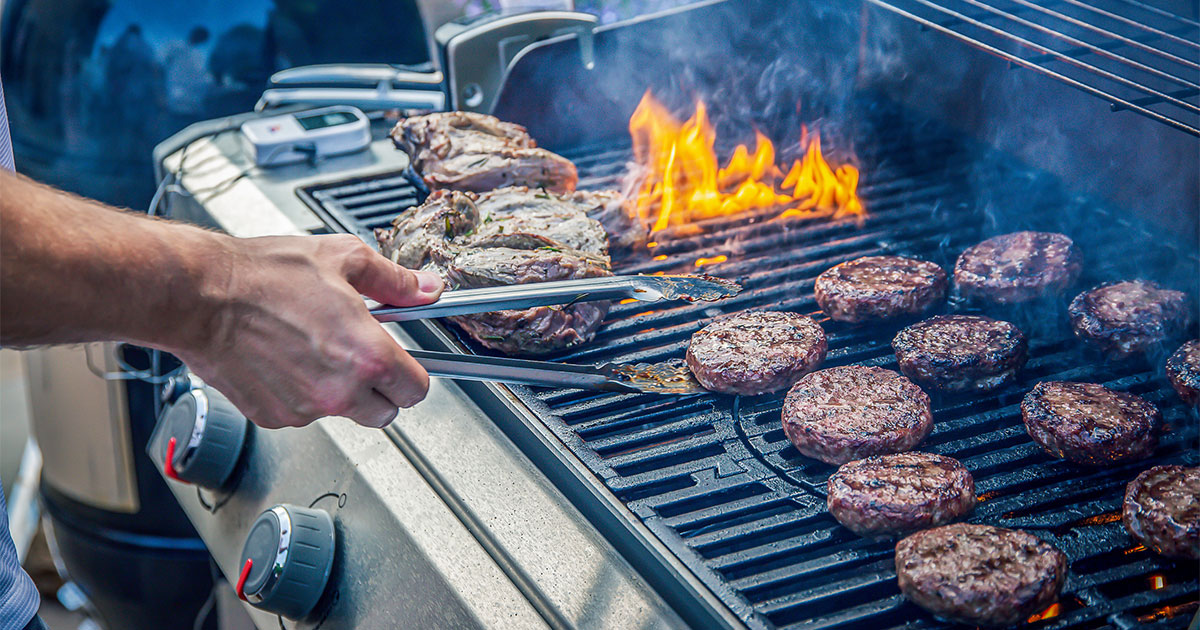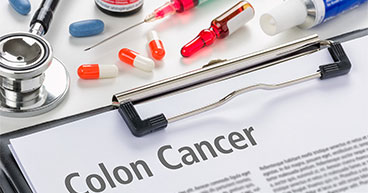
For many, summertime means backyard fun, swimming pools and barbecues. And for those who love red meat, there’s nothing like a thick ribeye sizzling on the grill. Or maybe you prefer lamb chops, baby back ribs or just a juicy hamburger. Whatever your preference, red meat is what’s for dinner for millions of Americans every day. Americans consume more than 55 pounds of beef and around 50 pounds of pork per person every year.
But concern is mounting that too much red meat, especially beef, may contribute to poor health and increased cancer risk. “I love a good steak,” says Stephen Lynch, MD, Vice Chief of Staff at Cancer Treatment Centers of America® (CTCA), Phoenix. “But I think it’s getting harder and harder not to acknowledge that there are significant concerns about beef.”
Red meat tends to be high in saturated fat and cholesterol, which may contribute to heart disease. It’s also linked to increased cancer risk. The American Institute for Cancer Research (AICR) says there’s “strong evidence” that eating a lot of red meat may increase the risk of colorectal cancer and may also be linked to prostate cancer and pancreatic cancer. The World Health Organization says red meat is “probably carcinogenic to humans.”
And it’s not just the meat but the way it’s prepared that may raise cancer risk. Processed meats, such as hot dogs and cold cuts that are cured, smoked or preserved in other ways, may increase cancer risk. Charring or searing meat, especially over an open flame, may also produce carcinogens.
“Red meat contains a compound [myoglobin] that is processed into compounds in the gut, which may damage the lining of the gut and possibly increase the risk of colorectal cancer,” says Carolyn Lammersfeld, Vice President of Integrative Care Services at CTCA®. “Cooking red meat at high temperatures can also produce other cancer-causing compounds.”
Doctors at Harvard University and the Dana-Farber Cancer Institute this month published research findings that link a “mutational process” in colon cells to red meat consumption. The scientists determined that digesting red meat may trigger an “alkylating” of cells in the colon, which may damage their DNA and lead to mutations such as KRAS, which is commonly found in colorectal cancer and other cancers. High levels and alkylating may also lead to poorer outcomes, the researchers concluded.
“Our data further support red meat intake as a risk factor for colorectal cancer, and also provide opportunities to prevent, detect, and treat this disease,” senior study author Marios Giannakis, MD, PhD, told The ASCO Post.
Get one-on-one nutritional advice from a registered dietitian.
Not so bad?
A study conducted by Canadian researchers and released late last year may have confused some Americans when it suggested there was no need to reduce red meat consumption to preserve good health. Published in the Annals of Internal Medicine, researchers recommended that “adults continue current unprocessed red meat consumption. Similarly, the panel suggests adults continue current processed meat consumption.”
But many researchers questioned the veracity of the study. Scientist at Harvard University’s T.H. Chan School of Public Health said the advice is “inconsistent with the principle of ‘first do no harm.’” Dr. Frank Hu, chair of Harvard’s Department of Nutrition, said the panel’s recommendation was “based on flawed methodology and a misinterpretation of nutritional evidence." Dr. Lynch says the study had “design concerns” and also raised questions about funding and possible bias. It was later revealed that researchers had potential “conflicts of interests” that were not initially disclosed when the study was published.
What is red meat?
Red meats include:
- Beef
- Pork
- Veal
- Lamb or mutton
- Venison
- Goat
Red meats do have some nutritional value. They are high in protein—about 25 grams per three-ounce serving. And they’re a good source of iron, zinc and B-vitamins, including B12, B6 and niacin. For some cancer patients, portions of lean red meat may be recommended as part of a healthy diet designed to provide balanced nutrition to help them gain weight and rebuild muscle.
As with all good things, moderation is the key, Lammersfeld says, noting that the American Cancer Society and AICR recommend less red meat and more plant-based proteins. The current recommendation is to try to limit all red meats to less than 18 ounces per week.
Plant-based proteins you may consider adding to your diet include:
- Soy products, such as soy milk or edamame
- Seeds, nuts and nut butters
- Lentils and peas
- Beans
“If you’re going to want to eat red meat, you’ll want to limit it,” Dr. Lynch says. “Red meats are part of my diet, but I don’t try to make it the core of my diet. If you’re going to eat meat every day, you’ll want to incorporate chicken and fish and lean meats. This is coming from a steak lover, and it pains me to say that. But I think the data is becoming increasingly clear.”



